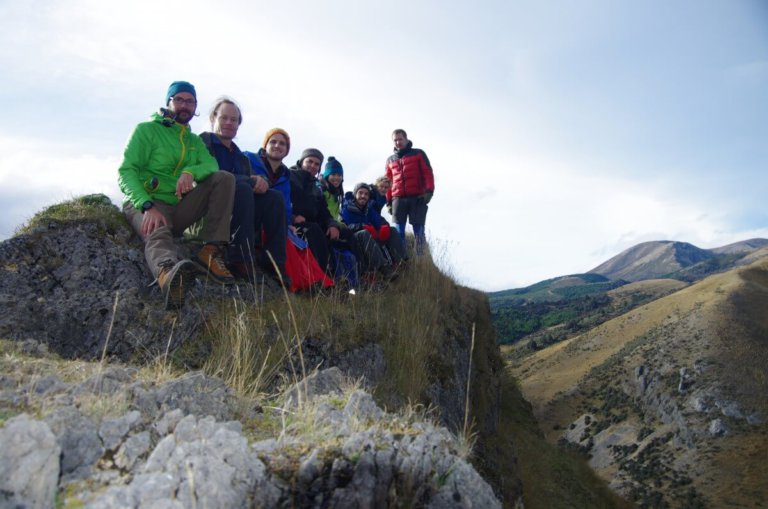
Are you keen to learn about the structure and history of the Earth?
Do you want to make a positive impact on the state of the natural and human world during and after your studies?
Or are you perhaps intrigued by the different cultural, social, and physical forces that shape the planet?
If so, then the School of Geography, Environment and Earth Sciences at Victoria University Wellington (VUW) in New Zealand has a range of Master’s programmes that can motivate you to become a leader of environmental change.
Located in Wellington, New Zealand’s science capital, the School brings students from all over the world together to investigate the changing nature of the Earth through time and processes that continuously reshape it.
And with more than 150 postgraduate students from over 20 different countries enrolled in the School, all of whom are supported by world-class academic staff, VUW supplies a study atmosphere like no other.

Source: VUW, School of Geography, Environment and Earth Sciences
“There is no better place in New Zealand to study. Dynamic is probably the best way to describe Wellington. The learning environment isn’t just the classroom; it extends from the national field trips, to the powerful political decisions being made just down the road. I love being able to look out the window of my office and see a landscape uplifted from the sea and a highway that follows the path of a fault,” says Raiatea Barlow Kameta, a VUW Master of Science in Physical Geography candidate.
Master’s programmes that make a difference
If you’re searching for a Master’s programme that makes a real-world difference, then you’re looking at the right school.
For example, on the Master of Climate Change Science and Policy (MCCSP) programme, you’ll gain a multidisciplinary insight into climate change challenges in science and policy. You’ll learn about the physical nature of climate change. You’ll consider the ethical, scientific and policy strengths and weaknesses of current and proposed strategies for dealing with it. You’ll explore the political forces fighting for, and against, addressing this crisis. All of which prepare students for some of the most pressing environmental issues in the world today.
“Everything we are learning in this programme is directly applicable to contemporary domestic and international climate change policy. These are urgent, real-world issues,” says VUW student James Young-Drew.

Source: VUW, School of Geography, Environment and Earth Sciences
Or, if you want to focus your attention on understanding how humans connect with and change the natural environment as well as spend time doing fieldwork, then the Master of Environmental Science (MEnvSc) may be a more suitable study route to pursue.
This degree will grant you an understanding of the tools and techniques that can help mitigate human impact on the environment as well as the ability to analyse complex data sets and communicate scientific results to effect policy and regulatory change.
Another postgraduate pathway at VUW that underpins global issues such as climate change and population dynamics is the Master of Geographic Information Science (MGIS).
Throughout this degree, you’ll explore, store, manipulate and analyse spatial and geographic data using computer-based systems. You’ll also have the chance to create new ways to visually interpret and present this information through interactive infographics and maps.
The MGIS is an eye-opening degree that lets one investigate the ideas behind the creation of these systems as well as think about the way we can conceptualise and solve spatial problems, from disaster management to conservation monitoring and archaeology.

Source: VUW, School of Geography, Environment and Earth Sciences
“GIS is a growing industry with so many career opportunities, so this qualification ticked all the boxes,” says VUW postgraduate Beth Lawson.
The real-world value of a VUW graduate
The Master’s degrees at the VUW School of Geography, Environment and Earth Sciences prepare the next generation of environmental graduates to spark real-world change.
Such impactful degrees do not exist without an expert faculty. The School’s faculty and staff are made up of notable figures in their respective fields, joined by their colleagues from the Wellington Faculty of Science, including specialists from the Antarctic Research Centre and the New Zealand Climate Change Research Institute.
Aside from their top-notch academic expertise, the School’s staff and supervisors are also there to support students through their New Zealand study venture.
One student who’s familiar with the welcoming and helpful nature of the VUW community is Amber Kale.

Source: VUW, School of Geography, Environment and Earth Sciences
Amber first earned a Bachelor of Arts at VUW, before following her interests in refugee resettlement to take up a postgraduate Human Geography course here. The faculties she has studied under may be different, but a common theme runs through them: Passionate and supportive faculty members.
“My supervisors and I have a great relationship and I always enjoy getting together with them to share ideas and chat about life,” she says.
“We have travelled together to different conferences and collaborated on several articles. I really appreciate the passion they display for their own research and the time and energy they invest in their student’s work.”
Such testimony underscores what the School does best: Providing a world-class education that contributes towards the planet’s wellbeing and the personal growth of their students.
So, if you’re ready to evolve from a VUW Master’s student into a leader of environmental change, then visit the School’s enrollment page today.
Follow Victoria University of Wellington on Facebook, Twitter, YouTube, LinkedIn and Instagram
Liked this? Then you’ll love…
5 prominent schools in Earth and Ocean Sciences
Earth Sciences: Top universities that help us achieve a more sustainable future







